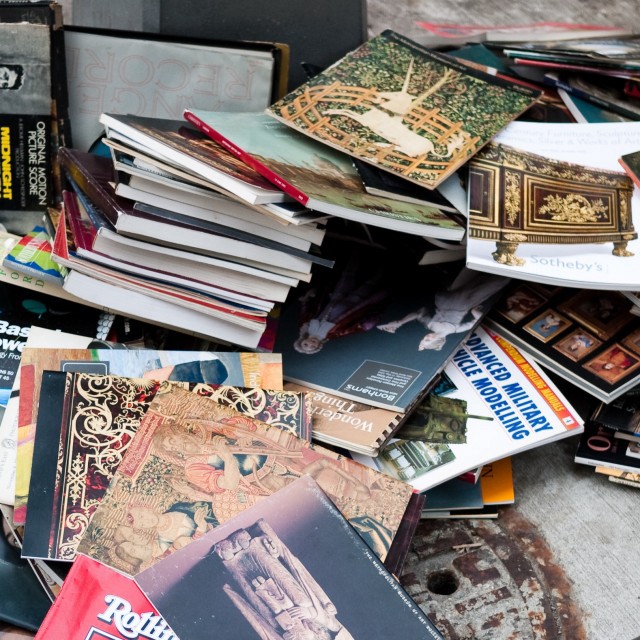The Books They Left Behind
by Casey N. Cep

Big, bold Wallace Stevens rests there in his entirety, several pages dog-eared with the poems you wanted me to read. There is the copy of Flannery O’Connor’s stories that I can only open if I turn past the title page where, in black loopy ink, your well wishes wave. There is the paperback of Leaves of Grass that has no name on the inside cover, but I know it belonged to you. There is the cheerful, brightly colored edition of Goodbye, Columbus that is always trying to say hello with tennis courts and swimming pools on the first page; your definition of what it meant to be rich.
These are some of the books haunting my shelves. There are the authors whose books have outlived them, and former owners whose used books were bargains, but those ghosts are mostly strangers. The ghosts who truly haunt are the ones we knew. Long after the passwords were changed and the clothing was sent back, the digital connections severed and the heirlooms returned, the books remain. I wonder about what to do with them.
Dante does not say that Francesca and Paolo kept reading in hell. Their book, I suppose, did not make the descent. I like to think that Sigismondo kept the copy of Lancelot and Guinevere that turned their eyes into magnets and their hearts into wax. “The book and writer both / Were love’s purveyors,” Francesca says. And so it was for me, many times now.
Love is a snake that is always shedding its skin. And while I have no trouble clearing away most of what has been sloughed off, books have always been the skins that I cannot discard. Why get rid of them when it is not the bindings but the stories that have been stained? I cannot read The Old Man and the Sea without remembering reading it to you in the car on our own adventure across some other sea, neither of us quite sure what it meant to dream of lions. And it isn’t my voice but yours that I hear in my head now when I remember little bits of The Four Quartets.
We can wash a shirt, but we cannot wash a book. We can repaint walls or reupholster furniture, but we cannot change the color of a novel or the pattern of a poem. Even if we obey the etiquette of ending things, returning the books that were borrowed and taking back the ones we lent, there are still the ones that were given. I don’t want to be Sigismondo holding onto the Arthurian legends long after Lancelot is being read with someone else, and yet hell would be to live without ex-books.
So keep ex-books long after your exes are gone. For some time, I have felt that was the only advice missing from the sort dispensed to broken hearts. A few have said, “There is nothing special about books. They are just like the cities where lovers lived together or the restaurants where they ate breakfast and lunch and dinner; you move if you cannot stand them or move on if you can.” But while you can leave a city or change your diet or find a new way to walk to work, you cannot alter books, even if you pull them from your shelves.
What to do about our haunted shelves then? Every book is associated with someone — siblings, friends, parents, professors, booksellers, even strangers — but the ones joined to exes haunt in a way that even the dead do not. I suspect that is why books are never on the lists of things that broken hearts are told to return. I don’t even keep mine separated on the shelves. These ghosts are with all the others, sandwiched between course books and bibles and galleys and all the rest.
I asked a friend once about returning some books to an ex, and she said no, you must keep them; then I asked about tearing out the inscriptions, and she said no, again; they are all talisman, she told me, and so they would have their power even if I threw away their inscriptions. She was right. Whether or not I ever open the page, I know the words are there, and even if I had torn them out, I would still remember what they said.
Casey N. Cep is a writer from the Eastern Shore of Maryland.
Photo by Charley Lhasa
